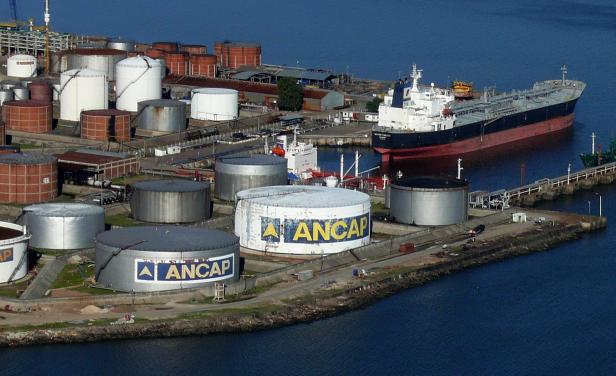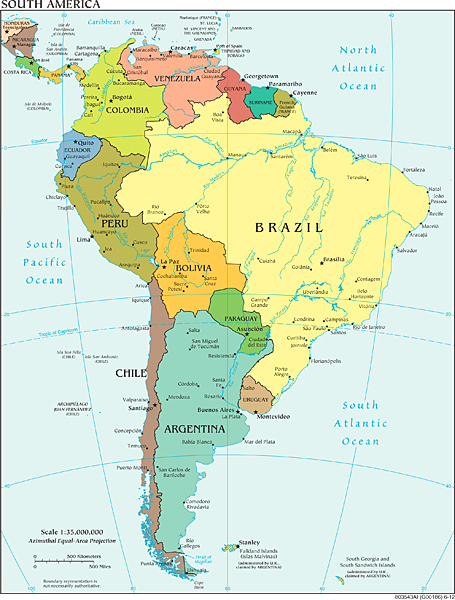 Darren Snow is currently Business Development Manager at Strainstall, part of James Fisher and Sons plc. We got in touch because of our common interest in Uruguay, and we were delighted when Darren accepted to write for us and share some of his very impressive experience of doing business in Latin America.
Darren Snow is currently Business Development Manager at Strainstall, part of James Fisher and Sons plc. We got in touch because of our common interest in Uruguay, and we were delighted when Darren accepted to write for us and share some of his very impressive experience of doing business in Latin America.
1. What’s your involvement in Uruguay and how did you start working here?
My personal involvement with Uruguay goes back to a previous position where I managed Latin American sales for a UK Engineering company (Armfield) manufacturing R&D and training equipment for universities for which I actively targeted the universities in Uruguay as well as the rest of Latin America. I had an agent in Uruguay which of course was an enormous help.

Photo: F.Flores for El País (Uruguay)
In my current work with Strainstall, we manufacture load measurement and monitoring systems with marine and offshore applications among others. At present we are working on a project for ANCAP (Uruguay’s national oil and gas company) related to the mooring system for an offshore oil / gas buoy (CALM Buoy). We are also in discussions with the container terminal operator, Montecon, related to the VGM amendment to the SOLAS regulation. In brief from July this year, all containers to be loaded onto a vessel will need to be weighed. This is leading to terminals around the world rushing to offer this weighing during their normal port operations (lifting the container).
We are now in discussions, installing trial and production systems in Latin American terminals from Mexico to Chile as well as in the rest of the world.
This work with Strainstall has come from a mixture of direct approaches, recruiting new agents and responses to websites / publicity.
2. What are the main barriers to doing business in Uruguay/South America and how do you overcome those barriers?
Imports into Latin American countries are not simple or cheap. I think that for many products and services this makes Latin America a very challenging target and probably unattractive. However, if the product or service offered is something that is not readily manufactured or sourced locally or regionally, then it is well worth the effort to overcome these import issues.
For British companies, language can be a barrier. It is always possible to find an agent that can translate, but that is not the always best solution as it limits what agents are available. Also, Latin Americans like to talk and a tedious technical or commercial conversation via a translator is just plain annoying for everyone!

Source: CIA World Factbook
As a nation, we Brits don’t have a good track record at mastering languages. I have worked in this region now for many years and speak Spanish and Portuguese and I am convinced that this has been a massive boost to my success in this region and many customers have told me as much.
Finding and choosing the right agent can also be a challenge as well as the magic ingredient to really succeed. True, this is the same for any region globally, but each area has its unique challenges. In countries less travelled for instance such as Paraguay, Bolivia or Venezuela, the best agent may be one man at home with his Blackberry and no website and has never heard of LinkedIn but how to find this man from an office in the UK is the secret.
I have found such people through using friends, family, business connections, and directly asking a target company who they use locally to supply x, y or z. Generally, I often find it is far easier to get information by just asking in Latin America than in Europe.
3. What would your top advice be for UK companies thinking of doing business with Uruguay/South America?
My advice to companies thinking of doing business in Latin America is to start with assessing the demand in the region. Yes, it sounds like common sense, but I have seen so many examples where this first step hasn’t been considered and the result is not pretty. Does your product have a USP that will justify it costing a lot more than a local or regional equivalent, when available?
For engineering products / projects a local agent is very often the best way to get a foothold in the area and also usually the only way to provide post sales support in the time frame required. There are always exceptions where a direct approach will work fine but for that, you will almost certainly need the language. Even if the main contact can speak English fine which is very often the case, what about accounts, buyers, other departments or project leaders, for example?
We would like to thank Darren for his contribution and we look forward to discussing business with him soon – either somewhere in Latin America or when we travel back to the UK this June!
